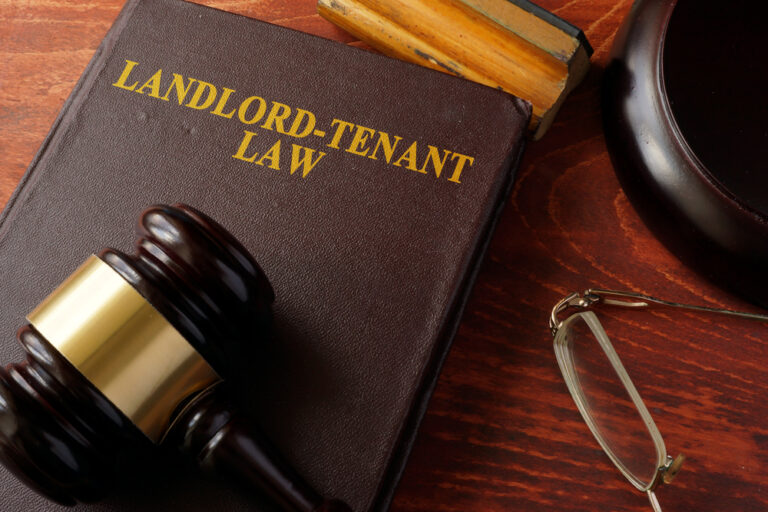Summary of Los Angeles County’s Eviction Protection Ordinance
The County of Los Angeles Rent Stabilization and Tenant Protection Ordinance, includes “just cause” eviction protections for tenants residing in unincorporated areas of the County. Here’s a summary of the Ordinance’s just cause provisions.
Registration Requirement
The Department of Consumer and Business Affairs oversees compliance with the Ordinance. L.A. County, Cal., Mun. Code § 8.52.030. Property owners must annually register their rental properties with the Department. L.A. County, Cal., Mun. Code § 8.52.080. Tenants can refuse to pay a rent increase if the property is not registered.
Just-Cause Requirement
Landlords must have a permissible reason (“just cause”) to evict a tenant. The Ordinance defines just cause in “fault” and “no fault” categories. The fault-based reasons for eviction are:
- Failure to pay rent
- Violation of a material term of the rental contract
- Creating a nuisance
- Using the unit for illegal purposes
- Failure to sign a substantially similar lease agreement
- Failure to move out of the unit after approval of a relocation application
- Household exceeds the income limits in a government regulated unit
“No-fault” reasons for eviction are:
- Owner/relative move-in
- Removal of the unit from the rental market (“Ellis Act” evictions).
- A government order requires the premises to be vacated
Evictions Based on Breach of Lease
For evictions based on breach of a material term of the lease, the landlord is required to give the tenant 10 days to fix the problem before proceeding with the eviction. Adding an occupant to the unit does not qualify as breach of a material term of the lease if the number of occupants does not exceed the maximum number of occupants legally allowed in the unit. Damaging the unit does not constitute breach of a material term of the lease if the tenant, after written notice from the landlord, pays the costs to repair and ceases damaging the unit.
Owner Move-In Evictions
Owner/relative move-in evictions require the following:
- The owner must own over 50% of the unit
- The owner/relative must have good faith intent to live in the unit as their principal place of residence for at least three years.
- The owner/relative must move in within sixty days after the tenant vacates.
- There are no vacant units in a building with three or more units.
- The owner must be a natural person. L.A. County, Cal., Mun. Code § 8.52.090.
Tenants are entitled to a written 60-days’ notice to vacate for an owner or relative move-in eviction. L.A. County, Cal., Mun. Code § 8.52.090. In addition, tenants may have protections from an owner or relative move-in if they or a member of their household is 62 years old or older, is disabled under Cal. Gov. Code § 12926, is terminally ill as verified by their medical provider, or is a low-income household. Id.
Ellis Act Evictions
Tenants are entitled to 120-days’ notice for Ellis Act evictions. A one year extension is available for protected tenants. L.A. County, Cal., Mun. Code § 8.52.090.
Filing Requirement
Landlords must file a copy of the notice of termination and proof of service with the Department of Consumer and Business Affairs within five days after the service of the notice.
Relocation Payment Required For No Fault Evictions
Tenants are entitled to relocation benefits if they must vacate due to an owner or relative move-in, Ellis Act, or government order. L.A. County, Cal., Mun. Code § 8.52.110. The amount of the required relocation payment depends on multiple factors, including the number of bedrooms in the unit and whether the tenant a senior or is disabled. The amounts range from approximately $7,600 to approximately $20,000.
Relocation benefits must be provided at the time the notice to terminate the tenancy is served. L.A. County, Cal., Mun. Code § 8.52.110. The landlord can choose to either deposit the payment into an escrow account or pay the amount directly to the tenant.
Tenant Remedies
Tenants may bring a lawsuit against the landlord for violations of the Ordinance. L.A. County, Cal., Mun. Code § 8.52.170. Tenants can sue for a wrongful eviction, illegal rent increases, illegal buyouts, retaliation, and harassment. Id. Tenants can seek injunctive, declaratory and other equitable relief, restitution, and reasonable attorney fees and costs. Id.
In addition, landlords face monetary penalties of up to $1,000 per violation of the Ordinance. Id. Landlords who have retaliated against or harassed the tenant will be liable for civil penalties of between $2,000 and $5,000 per violation. L.A. County, Cal., Mun. Code § 8.52.130. If the tenant is 62 years old or older or is disabled, the court may award an additional $5,000 per violation. Id. Each violation of the ordinance, and each day such violation is committed, permitted, or continued, is a separate offense. L.A. County, Cal., Mun. Code § 8.52.17.
Please contact Lynx Legal with any questions regarding the above, and for all of your eviction needs. We can be reached at 888-441-2355 or info@lynxlegal.com. Our experienced professionals are standing by to assist in any way we can.

